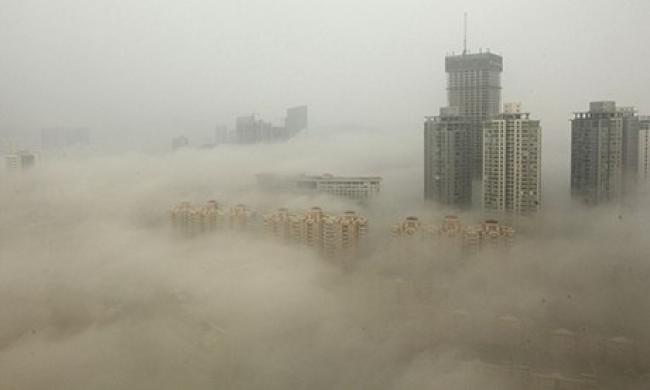Articles Menu

It has become a predictable pattern at the annual UN climate conferences for participants to describe the outcome in widely divergent ways. This was first apparent after the high-profile Copenhagen conference in 2009, when a four-page non-agreement was praised by diplomats, but denounced by well-known critics as a “sham,” a “farce,” and a mere face-saver. UN insiders proclaimed the divisive 2013 Warsaw climate conference a success, even though global South delegates and most civil society observers had staged an angry walk-out a day prior to its scheduled conclusion.
So it was no surprise when this happened again on December 12th in Paris. Francois Hollande praised the Paris Agreement as “ambitious,” “binding,” and “universal.” Ban Ki-moon said it ushers in a “new era of global cooperation,” and UN climate convention executive secretary Christiana Figueres described it as “an agreement of solidarity with the most vulnerable.” Barack Obama waxed triumphant and proclaimed the outcome a testament to American leadership in diplomacy and technology.
Friends of the Earth International, on the other hand, immediately denounced the agreement as a “sham of a deal,” adding that the most vulnerable people around the world would “feel the worst impacts of our politicians’ failure to take tough enough action.” The renowned elder climate scientist James Hansen called it a “fraud,” adding, “It’s just bullshit for them to say: ‘We’ll have a 2C warming target and then try to do a little better every five years.’ It’s just worthless words.” British climatologist Kevin Anderson, among the most politically forthright of current scientists, described the agreement as “weaker than Copenhagen” and “not consistent with the latest science.” More moderate in their criticisms were key figures such as Kumi Naidoo of Greenpeace International, who described the agreement as “one step on a long road …, but it is progress,” and 350.org’s Bill McKibben, who emphasized the agreement’s underlying challenge to the supremacy of the fossil fuel industry. “This didn’t save the planet,” McKibben wrote, “but it may have saved the chance of saving the planet,” in part by challenging the growing climate justice movement to keep moving forward.
Perhaps the most realistic assessment was posted by Guardian columnist George Monbiot on the day of the final deal. “By comparison to what it could have been, it’s a miracle,” he wrote. “By comparison to what it should have been, it’s a disaster.” It is clear that those who are praising the agreement and those who emphasize its shortcomings live in almost entirely different worlds.